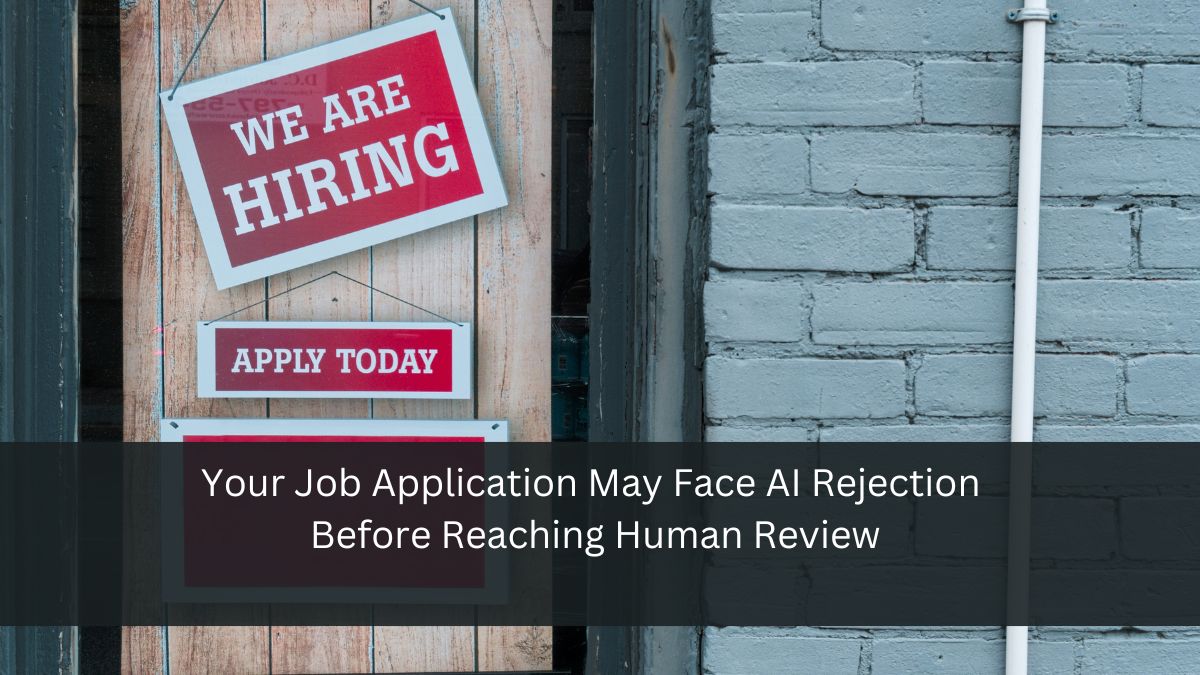AI
Your Job Application May Face AI Rejection Before Reaching Human Review

The Rise of AI in Recruitment
The job market is rapidly evolving, and companies across various industries are increasingly leveraging artificial intelligence (AI) tools, including generative AI, to streamline their recruitment processes. According to an ET report, these tools assist in candidate sourcing, resume screening, skills assessment, predictive analytics, and bias reduction. In some cases, human involvement only begins at the interview stage, while in others, GenAI bots even aid managers in conducting interviews.
Efficiency and Speed: The Key Advantages
Companies are embracing AI in hiring to enhance efficiency and speed up the process. Genpact, a professional services firm, recently introduced IMatch, an in-house resume parsing and job-matching engine powered by GenAI. Ritu Bhatia, Genpact’s global hiring leader, stated that the use of AI has led to a 15% increase in recruiter productivity and a reduction in the time to hire from 62 days to 43.
Simplilearn, an edtech company, has been utilizing ChatGPT and other AI tools for over a year to streamline job descriptions, develop proficiency assessments, and administer psychometric tests. Archana Krishna, the company’s chief HR officer, noted that this enables them to reduce time on mundane tasks and improve productivity and efficiency.
AI-Assisted Interviews and Improved Selection Rates
Welspun Enterprises, an infrastructure development company, employs a GenAI bot to assist executives in conducting interviews. Rajesh Jain, the chief HR officer, reported a remarkable improvement in hiring efficiencies, with the selection ratio increasing from 15% to 55% after implementing the GenAI bot for interviewing.
Concerns and Drawbacks
Despite the benefits, experts caution that there are certain drawbacks to using AI in hiring practices at its current stage of development. These concerns include ethical considerations surrounding data privacy, algorithmic transparency, and the potential for discrimination. Additionally, AI may lack the ability to evaluate soft skills, amplify biases, and identify potential in candidates that may not be immediately apparent.
The Future of AI in Recruitment
As AI technology continues to evolve, it is crucial for companies to strike a balance between leveraging its advantages and addressing its limitations. By integrating AI tools with human oversight and expertise, organizations can potentially enhance their recruitment processes while mitigating potential risks and ensuring a fair and equitable hiring experience for all candidates.
The Double Edged Sword
The integration of AI in the recruitment process is a double-edged sword. While it offers efficiency, speed, and data-driven insights, it also raises concerns about privacy, bias, and the inability to recognize hidden potential in candidates. As companies navigate this evolving landscape, they must prioritize ethical considerations, transparency, and a balanced approach that combines the strengths of AI with human expertise and judgment. Only then can the true potential of AI in recruitment be realized while maintaining fairness and protecting the interests of both employers and job seekers.
